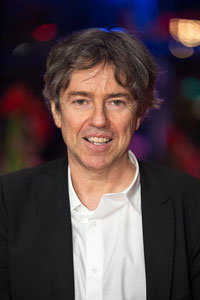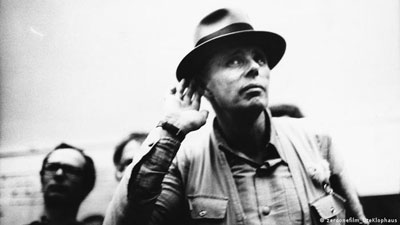Goethe Institute celebrates Joseph Beuys’ 100th Birthday
View(s):
Filmmaker Andres Veiel
Celebrating the life and artistic journey of renowned German sculpture and theorist Joseph Beuys on his 100th birth anniversary, Goethe Institute Colombo will present an online screening of a documentary directed by Andres Veiel at 5 pm from May 11 to 13. Made in German, 107 minute documentary is subtitled in English.
Few German cultural figures of the 20th century were as controversial as the action artist, sculptor, draftsman, art theorist and professor Joseph Beuys (1921 – 1986). His work dealt with a new, expanded concept of art that included the political co-creation of society. Andres Veiel’s documentary film is an extensive search for clues; he unearths a wealth of barely known archive material and lets contemporary witnesses such as Klaus Staeck have their say. The result is a collage of visual and audio documents that gives all viewers access to the complex work of Beuys.
In the course of the film, the work of Beuys becomes clearer and clearer. “His works with fat, copper and felt were artistic experimental arrangements for him. Fat was a symbol of a solidified form. If it was heated, it became mobile, it changed its shape. He understood copper as a conductive element, felt as an insulating one. Through the sculptures and spatial installations created with these materials, Beuys sought a new concept of sculpture that included the moment of movement. And at the same time he expanded this concept by transferring it to the human being: He referred to thinking as an elementary creative process. And thus, for Beuys, thinking in itself was already a sculpture. When thoughts start to move and shape the world, then for Beuys any human was in a position to change social processes. He understood his art only as a stimulating aggregate for a common work. For this work he used the term social sculpture.” (Andres Veiel).
Andres Veiel was born in Stuttgart in 1959 and began studying psychology in what was then West Berlin in 1982. After graduation, he trained as a director and dramaturg at the international cultural centre Künstlerhaus Bethanien in Berlin. Since 1988 he has been writing screenplays and making films, as well as penning plays and directing theatre productions. Today Veiel is an acclaimed director of documentaries and one of Germany’s most successful contemporary filmmakers.




